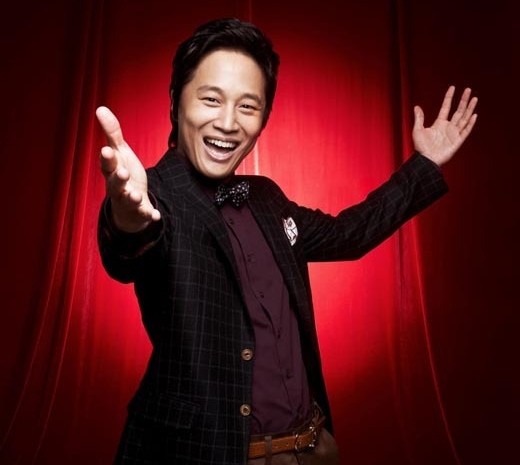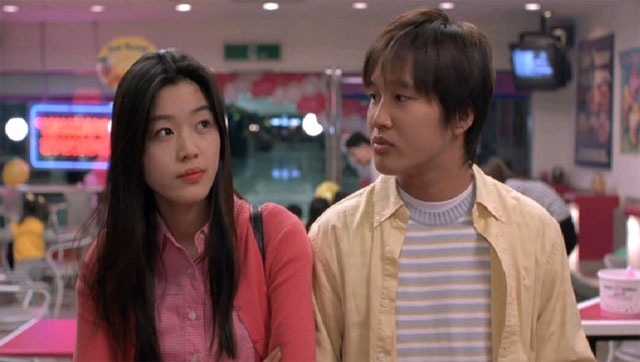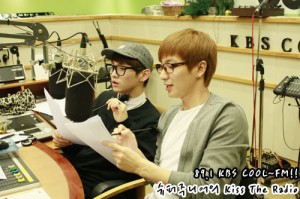 In my daily perusal of all things related to Korean entertainment, I recently chanced upon an article stating that the Korean Communications Standards Commission (KCSC), which monitors broadcasting in South Korea, reported complaints various and sundry regarding some South Korean radio broadcasts. Among them was the complaint that radio shows make use of too many English words for which there are Korean equivalents as well as the criticism that too many hosts utilize banmal with each other and with ordinary citizens who may call the show. The former is valid, but an unfortunate, if not inevitable, consequence of globalization; the latter is not unexpected, especially in a society like South Korea’s that relies heavily on age, seniority, and social position to construct sentences.
In my daily perusal of all things related to Korean entertainment, I recently chanced upon an article stating that the Korean Communications Standards Commission (KCSC), which monitors broadcasting in South Korea, reported complaints various and sundry regarding some South Korean radio broadcasts. Among them was the complaint that radio shows make use of too many English words for which there are Korean equivalents as well as the criticism that too many hosts utilize banmal with each other and with ordinary citizens who may call the show. The former is valid, but an unfortunate, if not inevitable, consequence of globalization; the latter is not unexpected, especially in a society like South Korea’s that relies heavily on age, seniority, and social position to construct sentences.
Or, I should say, it would be unexpected if one was in possession of a complete and total understanding of speech formality in the Korean language. Otherwise, such a complaint might make little to no sense.
As someone who’s been wrestling with Korean since 2008, I think I’ve finally gotten a solid handle on how speech formality functions both in communication and in a broader societal context, but many casual and even ardent K-pop fans may be a little (or a lot) confused on how the way one chooses to end one’s verbs in Korean reflects a whole plethora of qualities regarding interlocutors involved in conversation, their relationship, and their position relative to one another. Though I’m by no means an expert (full disclosure: I’m not Korean), here’s my breakdown of how you as a fan will encounter interplay between language and formality in the world of Korean entertainment.
Let’s get started.
 The first (and perhaps most important) thing that one needs to understand is that the Korean language is inherently hierarchical — meaning that it automatically structures the social context of the interlocutor’s relationship by demanding that anyone who occupies a position of seniority be addressed using a different level of formality than would be used to address someone of equivalent or lower status. In other words, anyone who might be considered worthy of more respect — this ranges from someone who was simply born one or more years before you to teachers, bosses, grandparents, and the like — must be spoken to using a specific set of vocabulary and verb endings unless both interlocutors feel comfortable enough in spite of age/seniority differences to drop such formalities. A failure to use the proper level of formality when speaking with someone indicates a lack of respect and could seriously damage the prospects of the relationship. It is for this reason that one of the first questions Koreans ask each other when they first meet is, “How old are you?” Knowing someone’s age sets the tone for how each interlocutor should structure his or her speech; the older person may speak at a lower level of formality to the younger, but the younger must always use formal speech unless instructed to do otherwise.
The first (and perhaps most important) thing that one needs to understand is that the Korean language is inherently hierarchical — meaning that it automatically structures the social context of the interlocutor’s relationship by demanding that anyone who occupies a position of seniority be addressed using a different level of formality than would be used to address someone of equivalent or lower status. In other words, anyone who might be considered worthy of more respect — this ranges from someone who was simply born one or more years before you to teachers, bosses, grandparents, and the like — must be spoken to using a specific set of vocabulary and verb endings unless both interlocutors feel comfortable enough in spite of age/seniority differences to drop such formalities. A failure to use the proper level of formality when speaking with someone indicates a lack of respect and could seriously damage the prospects of the relationship. It is for this reason that one of the first questions Koreans ask each other when they first meet is, “How old are you?” Knowing someone’s age sets the tone for how each interlocutor should structure his or her speech; the older person may speak at a lower level of formality to the younger, but the younger must always use formal speech unless instructed to do otherwise.
Once you’ve got this in mind (and remember, English does not have any built-in mechanism for this sort of thing), you can tackle the fact that there exist multiple levels of formality — and which one speakers choose to use is highly context-dependent. Here are the basics:
- The first level of formality would be the aforementioned banmal (반말), which loosely translates to “common speech” — the “ban” means “half” in Korean, and so it can also be understood as “half-speech.” This is the least formal of the levels of speech formality, and is most commonly used between people of the same age (which, in South Korea, means anyone who was born during the same lunar year as you were), close friends who may be a few years apart in age, siblings, parents, and children. In the world of Korean entertainment, you’d most likely encounter banmal in dramas or variety shows that feature members of the same idol group interacting with each other. Keep in mind that while the use of banmal most often indicates a close relationship between two people (remember the song that Jung Yong-hwa and Seohyun sang on We Got Married? The entire premise of the song was that Yong-hwa wished that Seohyun would feel comfortable enough with him to speak informally, for she spoke to him in careful formal speech for pretty much the entire time they were on the program), it can also be used to gravely insult someone to whom you do not wish to show proper respect. In many a drama and movie, a character conveys his/her disdain or disrespect for another person by speaking to them in banmal — but because it is incredibly difficult (if not outright impossible) for translations and subtitles to properly convey which level of speech is being used.
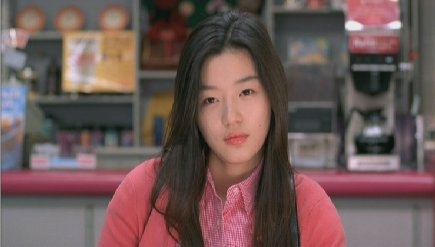 Half of the hilarity of My Sassy Girl is that The Girl never once addresses Gyeon-woo in formal speech; she uses banmal even at their first meeting, which is incredibly taboo in South Korea (a good rule of thumb is that first interactions are always carried out in formal speech until ages have been exchanged and the interlocutors have a better idea of how the relationship should be linguistically structured), and she continues to use it despite the fact that Gyeon-woo is revealed to be older than her by more than a year.How can you spot banmal? Listen for “ya” at the end of sentences! Informally-constructed verb tenses very often end with the sound “ya (야).” The greeting of “annyoung “안녕” also indicates informality.
Half of the hilarity of My Sassy Girl is that The Girl never once addresses Gyeon-woo in formal speech; she uses banmal even at their first meeting, which is incredibly taboo in South Korea (a good rule of thumb is that first interactions are always carried out in formal speech until ages have been exchanged and the interlocutors have a better idea of how the relationship should be linguistically structured), and she continues to use it despite the fact that Gyeon-woo is revealed to be older than her by more than a year.How can you spot banmal? Listen for “ya” at the end of sentences! Informally-constructed verb tenses very often end with the sound “ya (야).” The greeting of “annyoung “안녕” also indicates informality.
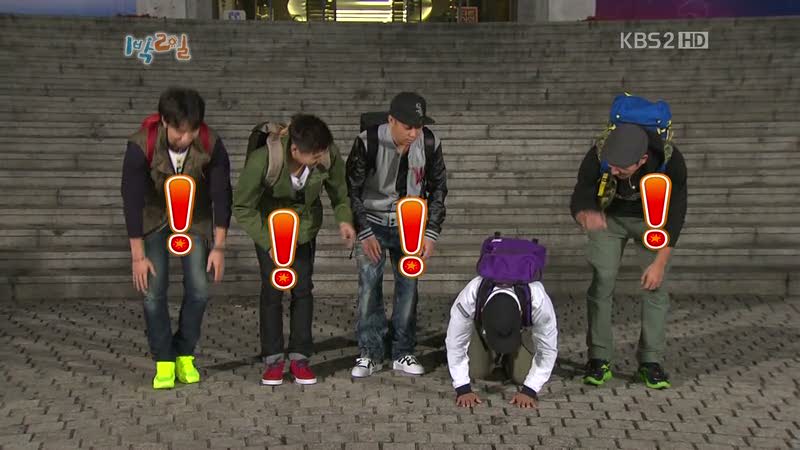
- The second tier up in terms of speech formality would be standard formality for ordinary situations — called jondaetmal (존댓말 — the ‘t’ is silent). The “jondaet” part of this word means “to respect, to hold someone in esteem” — and that is exactly what this level of formality conveys. It is used in a variety of situations: between people who first meet each other (recall that speaking informally upon first meeting is probably one of the worst things you can do to insult a Korean person), between colleagues at a workplace, between individuals who do not know each other and may not ever come to know each other (ex: a woman leaves her purse on the subway and someone calls after her), between people who are not close friends or family, and between anyone whose age/seniority difference is significant enough to warrant a difference in respect. Most readers will be familiar with the terms “oppa,” “unni,” “sunbae,” and “hoobae” (older brother, older sister, senior, and junior, respectively); anyone who would be deserving of one of these titles (i.e. anyone who is older than you by more than one lunar year) should automatically be addressed in jondaetmal unless given permission to do otherwise. Interestingly, most kids use banmal with their parents, but wouldn’t dream of using it with aunts, uncles, and especially not grandparents.To spot jondaetmal while watching Korean television, listen for sentences that end in “se-yo (세요) or simply “yo (요).” While “annyoung” indicates informality, “annyounghaseyo (안녕하세요)” marks formal speech.

- The next level up is what I personally call “super jondaetmal,” but actually just falls under the umbrella of jondaetmal when you are talking about or referring to it in Korean. The reason I make a distinction is because this type of jondaetmal is far less frequently used in ordinary conversation than is the other. Specifically, it is is used in very professional situations or situations where one speaker clearly deserves high respect (when addressing a company’s CEO or your boss, for example, or between businesspeople and clients), public announcements or announcements of any sort (all of the subway announcements in Seoul are composed in this form of jondaetmal), and news broadcasts. If you ever watch Korean news, all of the anchorwomen and anchormen’s speech will be this form of jondaetmal; similarly, if you’re a fan of any music program, then you’ve definitely heard this form of speech — because every MC, from Koo Hara to Tiffany, uses it when giving introductions. That some radio hosts failed to speak in this level of formality on their broadcasts was what the KCSC took issue with! For this level of formality, listen for sentences that end in “hamnida (합니다) or “seumnida (습니다). Due to the specificity of these endings, this level of formality may be the easiest to spot.
 The final level that K-entertainment fans will encounter would be (my terminology) “jondaetmal on crack” — the highest form of formal speech which is only used to address emperors, empresses, and members of the royal family. This form of speech is no longer taught at Korean language academies because South Korea no longer has an operating royal family; it has essentially fallen into disuse and maintains a place in Korean society largely only because of the popularity of historical and period dramas. The verb endings are similar to those used for super jondaetmal, but not quite the same. I can’t give too many examples of how you can spot it (because I myself never learned it), but chances are high that if the drama you are watching has royalty in it, it’s being used. The honorific term “mama” is the Korean equivalent of “your highness,” so keep your ears open for that!
The final level that K-entertainment fans will encounter would be (my terminology) “jondaetmal on crack” — the highest form of formal speech which is only used to address emperors, empresses, and members of the royal family. This form of speech is no longer taught at Korean language academies because South Korea no longer has an operating royal family; it has essentially fallen into disuse and maintains a place in Korean society largely only because of the popularity of historical and period dramas. The verb endings are similar to those used for super jondaetmal, but not quite the same. I can’t give too many examples of how you can spot it (because I myself never learned it), but chances are high that if the drama you are watching has royalty in it, it’s being used. The honorific term “mama” is the Korean equivalent of “your highness,” so keep your ears open for that!
These are the four levels of speech formality that you’ll likely encounter as a K-entertainment fan. Hopefully you’ll be able to spot them (even if you don’t understand what’s being said), and this will help you to grasp the nature of the relationship between the people who are speaking. And if you’ve got something to add, leave us a comment!
(KBS, Nate)
